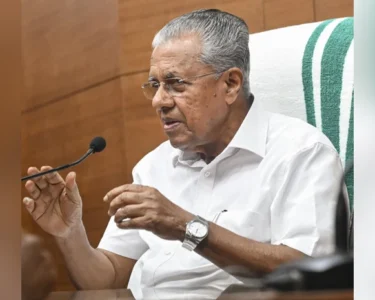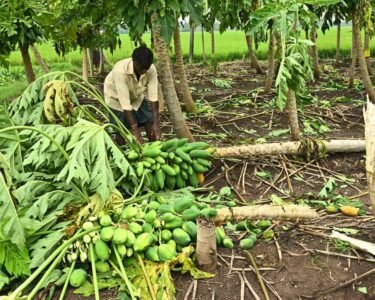The Communist Party of India (Marxist) [CPI (M)] has called upon the Central Government to initiate formal discussions with Maoist groups, stating that the current situation in various conflict-prone areas indicates a positive environment conducive to peace talks. The CPI (M) leadership expressed hope that the Centre would seize this opportunity to address long-standing grievances through dialogue rather than armed confrontation.
CPI (M) General Secretary Highlights Peace Window
Addressing a press conference, CPI (M) General Secretary Sitaram Yechury said that certain recent developments have created a relatively peaceful atmosphere in regions traditionally affected by Left-Wing Extremism (LWE). “This is an ideal time for the government to open channels of communication with Maoist groups. Dialogue is the only path forward in a democratic society,” he asserted.
Yechury emphasized that a military-only approach has not yielded lasting results and urged the Union Government to prioritize a political solution.
Historical Background of the Maoist Conflict
The Maoist insurgency, often referred to as the Naxalite movement, has persisted for decades, primarily affecting tribal and rural regions across central and eastern India. The conflict has its roots in deep socio-economic disparities, lack of land reforms, displacement due to industrial projects, and marginalization of tribal populations.
Over the years, several attempts were made to initiate talks, but mutual distrust, absence of consistent policy, and continued violence derailed most peace efforts.
CPI (M) Calls for Humanitarian and Development-Focused Approach
CPI (M) leaders stressed the need to move away from a purely militarized strategy and instead focus on issues like land rights, forest protection, healthcare, and education in Maoist-affected regions. They pointed out that many people in these areas turn to armed movements out of desperation, not ideology.
“The solution lies in addressing their genuine demands. The government must speak with not just the armed groups, but also civil society organizations and grassroots activists working in these regions,” said a senior CPI (M) politburo member.
Recent Developments Encouraging Dialogue
The CPI (M) cited multiple recent indicators that suggest Maoist groups may be open to dialogue:
- Decline in major attacks and ambushes in the last few months.
- Statements from some Maoist factions expressing willingness for talks under certain conditions.
- Improved presence of NGOs and peace activists in tribal belts.
- Public appeals from families of Maoist cadres urging peace.
“Such signals must not be ignored. We cannot let this opportunity slip away. The Centre must respond with seriousness and empathy,” said Yechury.
Past Peace Efforts: Lessons to Learn
The CPI (M) also referred to past dialogue attempts in states like Andhra Pradesh and Chhattisgarh, where talks were initiated but collapsed due to lack of trust and simultaneous combing operations by security forces.
“We must learn from past mistakes. Confidence-building measures are essential. Declaring a temporary ceasefire or halting police operations could create the right environment for talks,” said a CPI (M) spokesperson.
The party also suggested that an independent committee or mediator panel be constituted, comprising retired judges, human rights defenders, and conflict resolution experts.
Centre’s Stand Yet to Be Clarified
The Central Government has so far maintained a firm stance against Maoist violence and continues with its counter-insurgency operations through security forces such as CRPF, CoBRA, and state police.
While some senior government officials have hinted at openness to talks in the past, there has been no formal announcement or structured roadmap towards negotiations.
“We hope the Centre will respond constructively. This is a matter of national importance and peace is in everyone’s interest,” Yechury added.
Appeal to Political Unity on Peace Process
CPI (M) also urged other opposition parties and regional governments to pressurize the Centre to act. “This is not a party issue, it is about lives, dignity, and democracy in India’s tribal heartlands,” they said.
Leaders from other Left-aligned organizations, tribal welfare groups, and human rights advocates echoed similar views, adding that bringing Maoist groups to the table could mark a turning point in India’s internal security discourse.
Conclusion: A Call for Dialogue and Dignity
The CPI (M)’s appeal for peace talks with Maoists comes at a time when the country faces multiple internal challenges. Their call underlines the importance of a political and humanitarian approach to conflict resolution, especially in regions long plagued by violence and neglect.
As the Centre weighs its options, the ball is now in the government’s court to choose between extending an olive branch or continuing with force. If the current “positive atmosphere” is allowed to evolve into constructive engagement, it could open a new chapter in India’s efforts to resolve internal conflicts peacefully.







